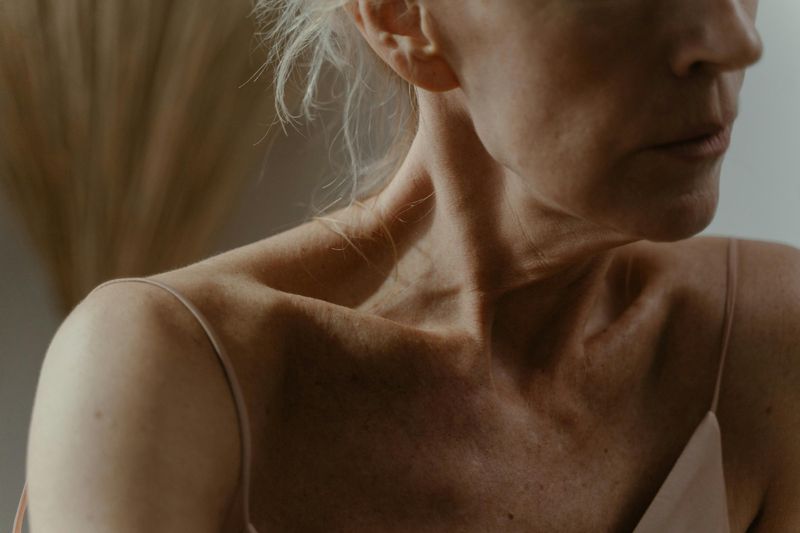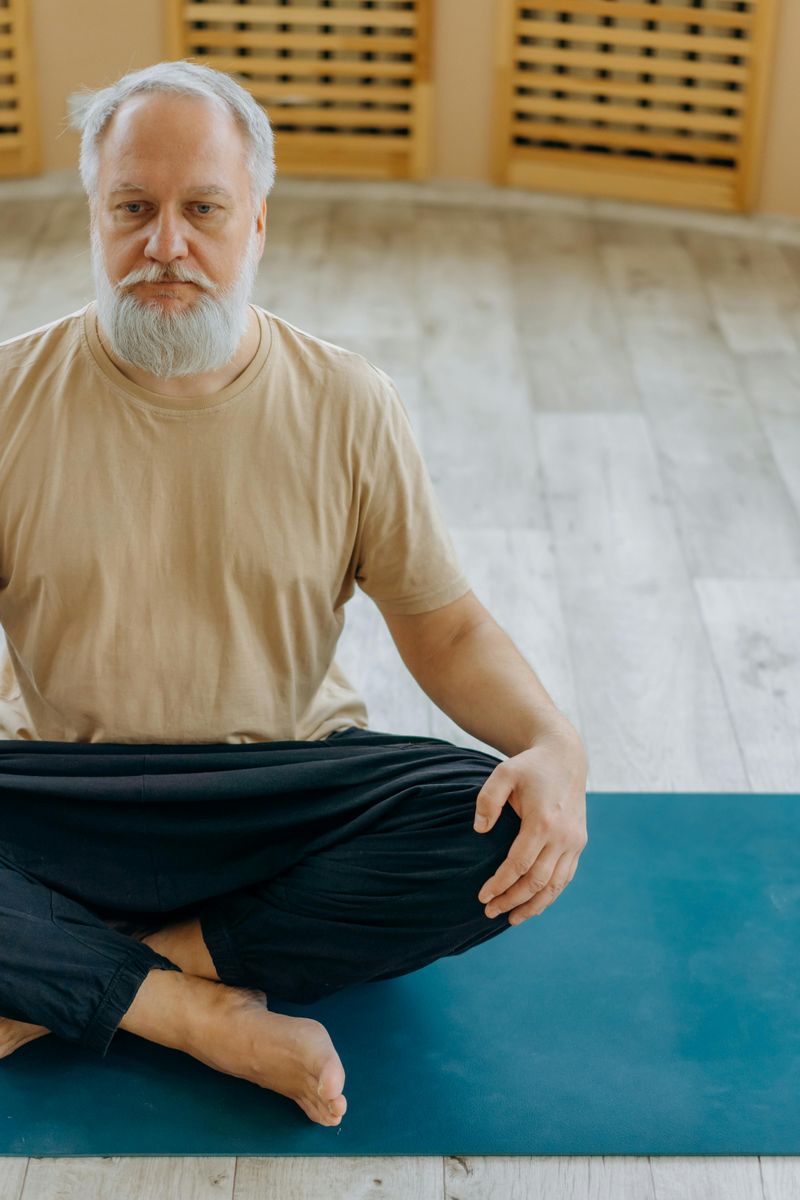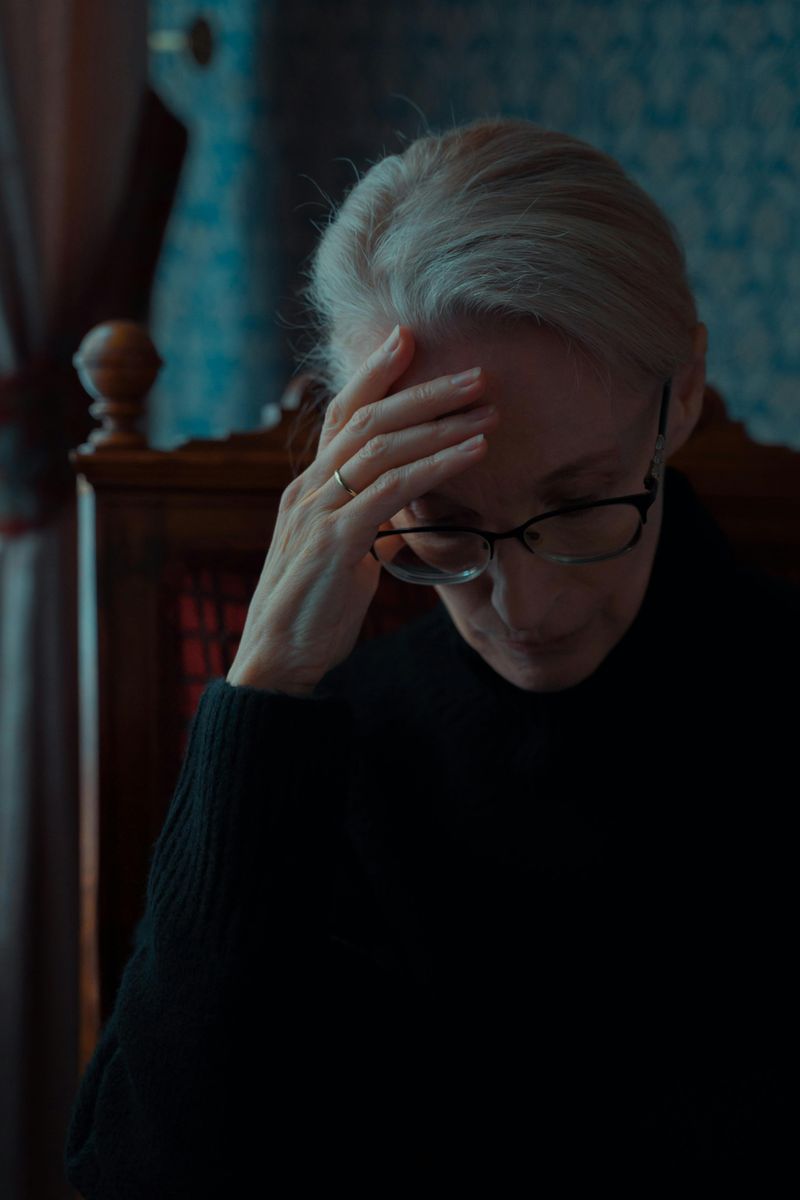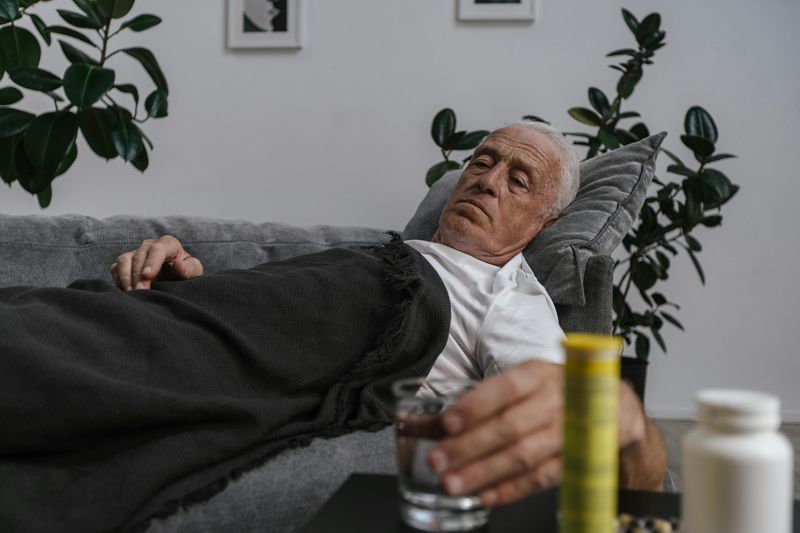Nobody wants to admit they’re aging poorly, and honestly, your friends probably won’t tell you either. Some signs are so gradual that you might not notice them creeping up until they’ve already taken hold. Recognizing these subtle red flags early gives you the power to reverse course and age gracefully instead of letting time take its toll unnecessarily.
1. Your Skin Looks Dull and Saggy

That natural glow you once had starts disappearing when collagen production slows down. Collagen keeps skin firm and bouncy, but after age 25, your body makes less of it every year.
Even if you’re sleeping well and drinking plenty of water, your face might still look tired and lifeless. This happens because your skin is losing its ability to hold moisture and snap back into place.
When you pinch your cheek and it doesn’t bounce back quickly, that’s elasticity loss in action. Fine lines deepen, and your complexion can look grayish instead of vibrant. Proper skincare, sun protection, and collagen-boosting foods can help slow this process down significantly.
2. You’re Constantly Tired — Even After Rest

Waking up exhausted after a full night’s sleep isn’t normal, yet many people brush it off as just getting older. Persistent fatigue often points to deeper issues like hormonal imbalances, thyroid problems, or declining muscle mass.
Your metabolism naturally slows with age, which means your body produces energy less efficiently. When combined with stress or poor nutrition, this creates a constant state of tiredness that rest alone can’t fix.
Muscle loss also plays a role because muscles burn calories and help regulate energy levels. If you’re feeling drained all the time, it’s worth checking your hormone levels, improving your diet, and adding strength training to rebuild what time has taken away.
3. You’ve Lost Muscle but Gained Fat (Especially Around the Midsection)

Ever notice your jeans fitting tighter around the waist even though the scale hasn’t budged much? This sneaky body composition shift happens when muscle tissue breaks down and gets replaced by fat, especially around your stomach.
Doctors call the deep belly fat “visceral fat,” and it’s far more dangerous than the jiggly kind you can pinch. It wraps around your organs and increases risks for heart disease, diabetes, and other serious conditions.
This change accelerates after 30 because metabolism drops and hormones shift. Strength training becomes crucial here—not just cardio. Building muscle revs up your metabolism and helps you maintain a healthier body composition as you age.
4. Your Posture Is Getting Worse

Slouching might seem harmless, but poor posture makes you look decades older instantly. Rounded shoulders, a forward-tilting head, and a curved spine all signal that your core and back muscles have weakened over time.
Sitting at desks for hours doesn’t help either. Modern lifestyles keep us hunched over screens, which trains our bodies into these aging positions. Bad posture doesn’t just affect appearance—it stresses joints, causes chronic pain, and restricts breathing.
Your spine’s natural curves flatten or exaggerate when supporting muscles fail. Regular stretching, core strengthening exercises, and being mindful of how you sit and stand can dramatically improve your posture. Standing tall literally takes years off your appearance and protects your body’s mechanics.
5. You Forget Simple Things More Often

Walking into a room and forgetting why you’re there happens to everyone occasionally. But when these moments become frequent, it could signal early cognitive decline that’s preventable with the right lifestyle changes.
Chronic stress floods your brain with cortisol, which damages memory centers over time. Poor sleep quality prevents your brain from consolidating memories properly, and a sedentary lifestyle reduces blood flow to brain cells.
Brain fog and forgetfulness aren’t just “getting older”—they’re warning signs your brain needs better care. Mental exercises, quality sleep, stress management, and physical activity all protect cognitive function. Foods rich in omega-3s and antioxidants also support brain health and can sharpen your memory back up.
6. Your Recovery Time Is Much Slower

Remember bouncing back from a late night or tough workout within hours when you were younger? Now it takes days, and that shift reveals a lot about how your body’s aging internally.
Slower recovery signals that your cells aren’t repairing themselves as efficiently anymore. Metabolism drops, inflammation increases, and your body struggles to clear out waste products that build up during physical stress.
Whether it’s hangovers lasting two days, sore muscles sticking around for a week, or catching every cold that goes around, these are red flags. Supporting recovery with proper nutrition, hydration, sleep, and anti-inflammatory foods helps. Regular movement also keeps your repair systems active and responsive instead of letting them rust from disuse.
7. You’ve Lost That Spark

Feeling emotionally flat isn’t just a mood issue—it’s often a physical sign that something’s off balance inside your body. Low energy, irritability, and losing interest in things you once loved can stem from hormonal changes, vitamin deficiencies, or social isolation.
Testosterone and estrogen levels drop with age in both men and women, affecting mood, motivation, and overall zest for life. When combined with nutrient gaps like low vitamin D or B12, you end up feeling like a shell of your former self.
Mental stimulation and social connections matter just as much as physical health. Engaging hobbies, meaningful relationships, and challenging your brain regularly keep that spark alive. Checking hormone levels and nutritional status can reveal fixable problems stealing your enthusiasm.
8. Your Hair and Nails Are Brittle and Weak

Brittle nails that split easily and hair that breaks off or thins dramatically aren’t just cosmetic annoyances—they’re external signs of internal nutritional deficiencies and declining health. Hair and nails are made mostly of protein, specifically keratin, which requires proper nutrition to stay strong.
As metabolism slows and digestion becomes less efficient with age, your body struggles to absorb key nutrients like biotin, iron, zinc, and protein. Without these building blocks, hair and nails suffer first because your body prioritizes more vital organs.
Hormonal shifts also play a role, particularly thyroid hormones that regulate hair growth cycles. If your hair and nails seem weaker than before, consider boosting protein intake, taking quality supplements, and getting thyroid levels checked to address the root cause.

Comments
Loading…